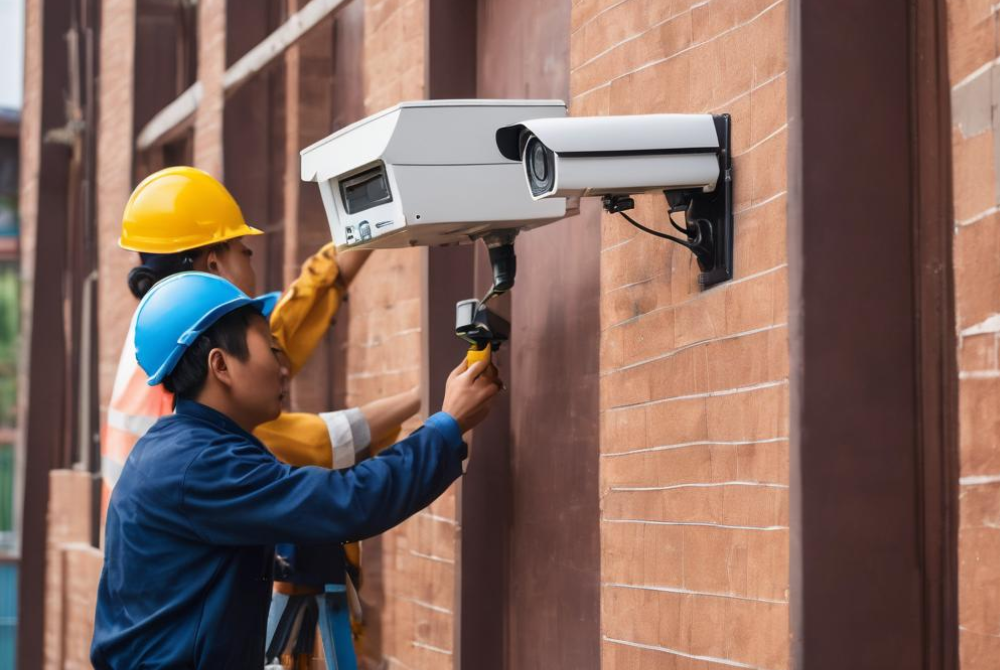Curbing crime: Installing CCTVs costly? Govt, lawmakers shall step in
Govt can play a vital role in ensuring the safety of the people by suggesting a funding model that supports the installation of CCTV systems.

SHAH ALAM – The importance of closed-circuit television cameras (CCTVs) in combating crime is indisputable as it can increase offenders' perception of the risk of getting caught, encouraging public use of an area and improving citizen awareness to take additional precautions.
Hence, it is high time for collaboration between local assemblymen, members of parliament, and local authorities to ensure the effective implementation of CCTV systems in hotspot areas such as low-cost flats.
Speaking to Sinar Daily, Senior Partner of Messrs Anton and Chen, Alex Anton Netto highlighted the crucial role of cooperation between authorities to install CCTV and highlight the significance of CCTV surveillance in crime prevention, particularly addressing issues such as home break-ins and snatch thefts.
"To make this happen, it needs to be a joint effort between the local assemblymen, member of parliament with the local authority,” he said.
While emphasising the importance of collaboration between local officials, Alex acknowledged the potentially high cost associated with installing CCTV systems.
In response to this concern, he proposed a funding model where a portion of the installation expenses is covered by the government, easing the financial burden on residents.
"The government can play a vital role in ensuring the safety of its citizens by suggesting a funding model that supports the installation of CCTV systems.
"This collaborative effort will not only enhance security but also foster a sense of safety within the community," Alex stated.
He further highlighted the mutual benefit of increased surveillance, asserting that a safer environment positively impacts the overall well-being of the community.
Alex further urged the authorities to consider the long-term benefits of investing in CCTV systems for crime prevention.
"This is because CCTVs are important in crime prevention especially when we speak about home break-ins, snatch thieves and more," he said.
Echoing Alex’s statement, human rights activist Arun Dorasamy urged the government to subsidise CCTV installations in hotspots areas especially low-costs flats to curb rising incidents of robberies, drug trafficking, and other criminal activities.
He emphasised the urgency of this initiative, especially in low-cost housing areas where law and order issues are rampant.
"Most of the low-cost houses are the ones facing numerous problems related to law and order, including robberies, vandalism, and the frequent presence of drug trafficking and alcohol consumption," he said.
In his plea to the government, Arun highlighted the need for a targeted approach in combatting social ills and criminal activities.
"This initiative is a pivotal part of the government's commitment to addressing and eradicating these issues.
"By ensuring the less fortunate communities, particularly those in the B40 category, have access to subsidised CCTV installations, we can make significant strides in creating safer living environments," he reasoned.
For this initiative to be effective, Arun said it was imperative to have strict regulations governing the installation and maintenance of CCTV systems.
"Subsidising CCTV installations is just the first step. We must establish and enforce regulations that mandate the proper installation, maintenance, and operation of these surveillance systems.
"Any improper use or malfunctioning CCTV should be prohibited and criminalised to ensure their effectiveness in crime prevention," he added.
The human rights activist's call to action comes at a time when communities residing in low-cost housing units grappled with escalating crime rates.
Arun believed that by implementing these measures, the government could significantly contribute to the enhancement of security and well-being in these vulnerable communities.
Meanwhile, former Malaysian Bar president Salim Bashir raised concerns about the potential infringement on individuals' privacy and the restriction of vibrancy in public spaces due to potentially extensive CCTV use.
"It is crucial to strike a balance between public safety and individual privacy.
"While CCTV systems are legal for safety purposes, they must comply with the Personal Data Protection Act 2010 and guidelines under the Malaysia Communication and Multimedia Commission (MCMC)," Salim said.
He urged local governments to consider installing cameras strategically in key areas prone to crimes and accidents, ensuring the protection of public spaces without compromising citizens' privacy.
Salim highlighted that many major cities worldwide have successfully implemented CCTV systems in such areas, enabling swift action in response to incidents.
"Our local government should consider installing the cameras in key areas prone to crimes, accidents and where the crowds will usually assemble.
"Many major cities in the world have installed CCTV in such places to ensure fast action whenever there are incidents of crime," he said.










